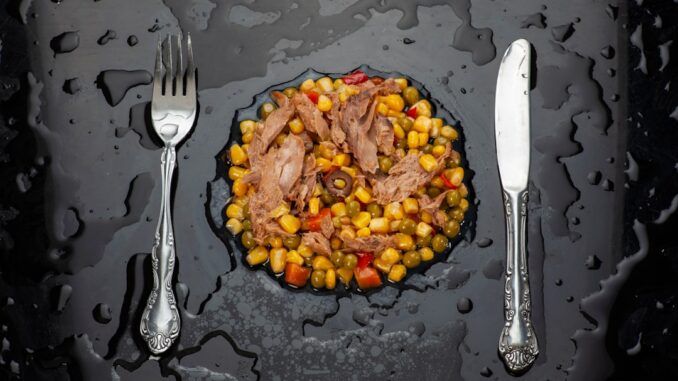
Summary
Intermittent fasting (IF) is gaining popularity as a weight-loss method and for its potential benefits for cardiovascular health. While IF can lead to weight loss and improve some metabolic markers, recent studies suggest a potential link between time-restricted eating and an increased risk of cardiovascular disease. More research is needed to fully understand the long-term effects of IF on heart health. Individuals considering IF should consult their doctor for personalized advice.
Safeguard patient information with TrueNASs self-healing data technology.
Main Story
Intermittent fasting (IF) has really become a huge topic in the wellness world, hasn’t it? It’s often praised as a magic bullet for weight loss and even better heart health. But, you know, is it really all it’s cracked up to be? Let’s dig into some recent research; it paints a more complex picture, I think, which means you should be thinking carefully and seeking personalized advice.
Basically, IF isn’t about what you eat; it’s about when. It involves switching between eating and voluntary fasting periods, sort of giving your body’s metabolism a little shakeup. Common forms include time-restricted eating, like the 16/8 method where you only eat within an 8-hour window each day or the 12/12 which is less extreme. Then there’s alternate-day fasting too, where you alternate between normal eating and days with significantly reduced calories. I’ve even heard of people who fast for entire 24 hour periods, which sounds tough.
The appeal for weight loss is obvious, isn’t it? By limiting your eating time, you’re naturally likely to eat fewer calories. Studies show that IF can lead to weight loss between 0.8% to 13% over a span of a few weeks up to a year. And that can be particularly great for people with type 2 diabetes since weight loss improves insulin sensitivity. That alone is a huge benefit.
It’s not just about weight though; IF has also been linked to heart benefits. Short-term studies show it may improve insulin resistance, lower your “bad” cholesterol (LDL), and raise your “good” cholesterol (HDL). These metabolic improvements are generally associated with lower heart disease risk, that’s the important part. Also, some studies show IF can reduce blood pressure and triglycerides, which are key for heart health. All of this sounds pretty positive right?
But wait…a recent 2024 study of over 20,000 adults has shown those following an 8-hour eating schedule might actually have an increased risk of cardiovascular death! While this study doesn’t take away the potential short term benefits, it really underscores the need for more research to fully grasp this complex relationship between IF and long term heart health. I mean what’s causing this? The theory is that disrupting your body’s natural circadian rhythm and metabolic processes is to blame, which really makes you think.
So, the main takeaway here? Intermittent fasting can be helpful for weight loss and has some short-term metabolic benefits. That said, the latest research suggests some forms of IF, particularly that time-restricted eating approach, might be linked to a greater long-term risk of cardiovascular issues. It’s crucial to approach IF cautiously, particularly if you have pre-existing conditions such as diabetes or heart disease. If that’s you definitely talk to your healthcare provider before making any big dietary changes. They can help you figure out if it’s right for you and guide you on the safest path. You really need personalized advice on something like this, and, as we keep learning more, we’ll get a better handle on the long-term impact of IF on health. It’s a journey, and we’re all learning together! It’s interesting stuff.


So, you’re saying that skipping meals might help me fit into my jeans but also, possibly, put me six feet under? A bit dramatic, but I see the point; perhaps a chat with the doctor *before* a diet change is indeed wise.
It’s interesting how the potential weight loss benefits are often the main focus, isn’t it? Your point about speaking to a doctor highlights the importance of considering the full picture, especially as we uncover more about the long-term health impacts of dietary changes.
Editor: MedTechNews.Uk
Thank you to our Sponsor Esdebe – https://esdebe.com
So, you’re saying I can choose between fitting into my skinny jeans and not, you know, *dying*? Decisions, decisions. Maybe I’ll just stick to elastic waistbands and hope for the best.
It’s a dramatic way of putting it, but you’ve hit on a key point! The balance between short-term goals and long-term health is really complex. Perhaps a wider discussion on sustainable health habits might be useful?
Editor: MedTechNews.Uk
Thank you to our Sponsor Esdebe – https://esdebe.com
So, it’s a bit of a gamble then? Losing weight while also potentially increasing my chances of a heart-related surprise later on? Maybe I’ll stick to my current eating schedule of whenever-I-feel-like-it and just hope for the best.
I appreciate your comment! You’ve highlighted a key element of the discussion. The potential trade-off between short-term weight loss and long-term heart health is definitely something people should consider. What strategies do you think are sustainable when it comes to long-term health goals?
Editor: MedTechNews.Uk
Thank you to our Sponsor Esdebe – https://esdebe.com
So, it’s a bit like a choose-your-own-adventure book then? I lose weight *and* maybe a few years? Does anyone offer a guide book to navigate this heart-health minefield?
That’s a great analogy! The ‘choose-your-own-adventure’ concept really captures the complexity of IF. It highlights the need for personalized guidance. Perhaps we can discuss the kind of resources that could help people navigate these choices, what do you think?
Editor: MedTechNews.Uk
Thank you to our Sponsor Esdebe – https://esdebe.com